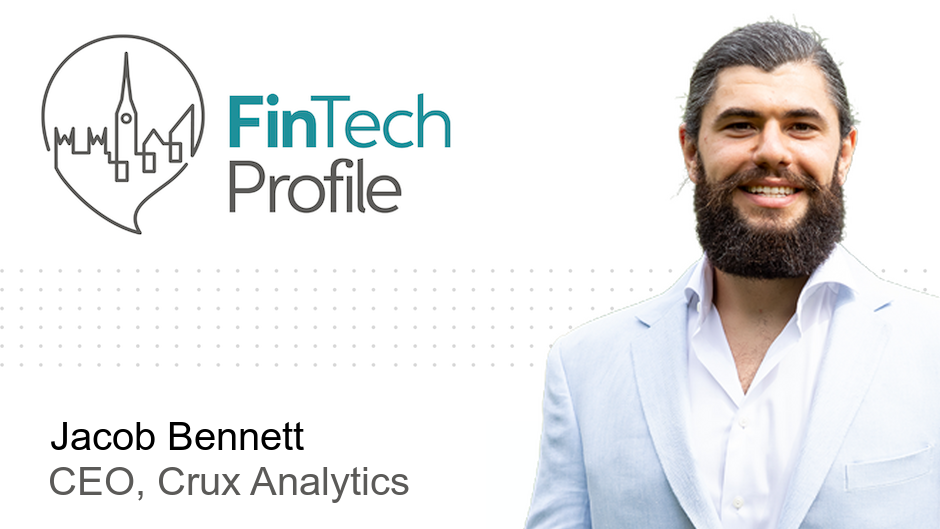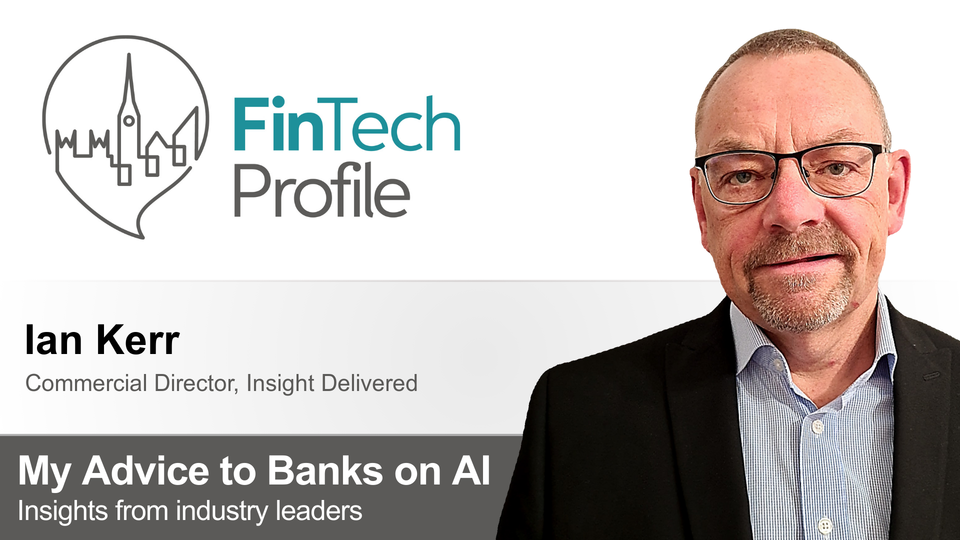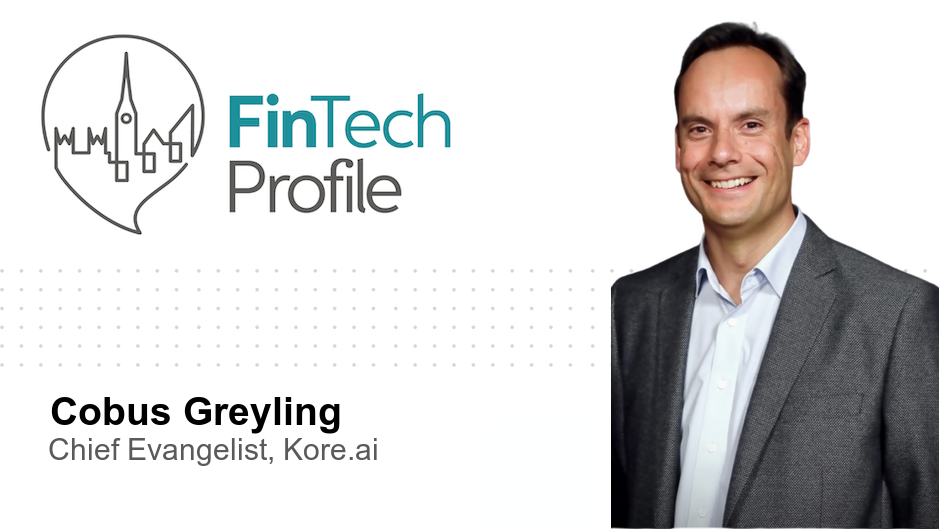Jacob Bennett, CEO and Co-founder, Crux Analytics

Today we're meeting Jacob Bennett, CEO and Co-founder at Crux Analytics. They specialise in relationship intelligence platforms that transform how financial institutions engage with small businesses.
Over to you Jacob - my questions are in bold:
Who are you and what's your background?
I'm Jacob Bennett, Co-founder of Crux Analytics. My background spans small business ownership, consulting for Fortune 500 companies, and working with early-stage startups. This diverse experience highlighted a critical gap in how financial institutions serve small businesses. The problem became especially evident during the COVID-19 pandemic, when I witnessed firsthand how small businesses struggled to secure timely financial support due to outdated systems and inefficiencies. This frustration ultimately led me to co-found Crux in 2023 to create a better solution for both banks and the small businesses they serve.
What is your job title and what are your general responsibilities?
As CEO and Co-founder of Crux Analytics, I lead our strategic vision and business development efforts.
My responsibilities include working closely with financial institutions to understand their small business banking challenges, guiding our product roadmap to address these pain points, and building partnerships that help us scale our impact.
I'm hands-on with clients during implementation to ensure we're delivering tangible value from day one. Most importantly, I see my role as an advocate for reshaping how banks engage with small businesses, moving from transactional relationships to meaningful advisory partnerships.
Can you give us an overview of your business?
Crux Analytics is a relationship intelligence platform transforming how financial institutions engage with small businesses.
We're addressing a core challenge in business banking: too much time is spent on planning and operational tasks, and not enough on building valuable client relationships. Our platform combines intelligent workflow automation, real-time analytics, and AI-powered prioritization so bankers can deliver better outcomes for their institution and small business clients.
It automatically finds, qualifies, researches, and prioritizes leads while creating personalized engagement strategies without manual work. The system continuously monitors client portfolios, alerting bankers when to reach out and suggesting the right products at the right time. We founded the company in New York City in 2023 with a mission to make small business banking smarter, faster, and scalable.
Tell us how you are funded?
While I can't share specific details about our funding structure, Crux Analytics has secured the resources to build our platform and grow our client base. We're addressing a substantial market opportunity, as small businesses drive nearly half of U.S. employment and 44% of GDP, but remain underserved by traditional banking relationships.
What's the origin story? Why did you start the company? To solve what problems?
The origin of Crux Analytics stems from personal experience. Through my background running a small business and consulting across the corporate spectrum, I repeatedly observed how underserved small businesses were by traditional financial institutions.
This gap became especially apparent during the COVID-19 pandemic, when small businesses struggled to access timely financial support. Bankers were navigating significant operational pressures and rapidly changing circumstances, making it even more challenging to provide the proactive guidance business owners needed during such a critical time.
Recent research reinforces this problem: since 2018, the importance of expert business and financial advice has surged 28% among small businesses, while the value placed on physical bank locations has dropped 44%. Business owners don't just want access, they want insight.
Driven by the desire to address these issues, I teamed up with my brother Nathan, who brings over a decade of experience in engineering and product strategy from his senior roles at Wesper and Boston Scientific. Together, we built a platform that eliminates the logistical burden of small business banking so that bankers can become the trusted advisors that small businesses are seeking.
Who are your target customers? What's your revenue model?
Our target customers are financial institutions such as community banks and credit unions that serve small businesses and understand the value of strengthening these relationships.
We work with institutions that recognize small businesses aren't just another segment, but a critical economic engine deserving specialized attention and tools. On the revenue side, we primarily charge an annual subscription fee tied to the size of the institution's existing portfolio and growth goals.
Our platform delivers measurable improvements in banker efficiency, net new relationship growth, and portfolio performance. Financial institutions see returns through increased client acquisition, stronger retention, and greater product penetration across their small business portfolios.
If you had a magic wand, what one thing would you change in the banking and/or FinTech sector?
If I had a magic wand, I'd transform how financial institutions measure success with small businesses, shifting from product-centric metrics to relationship-value metrics.
Instead of simply tracking the number of accounts opened or loans closed, I'd focus on how many businesses were meaningfully supported through critical growth phases or challenging economic periods. This shift isn't just good for small businesses; it's a smart business strategy for banks and fintechs. Building deeper, more supportive relationships leads to higher customer loyalty, increased lifetime value, and more sustainable, profitable growth.
In today's competitive landscape, the real ROI comes from unlocking exceptional relationships beyond just transactions. Ultimately, technology should be used to enable and scale these human connections, not replace them.
What is your message for the larger players in the Financial Services marketplace?
My message is simple: small businesses are seeking partners, not just providers. Recent data shows that small businesses now value expert advice 28% more than they did just a few years ago.
In today's economic climate, with the net percentage of small business owners expecting better conditions seeing its steepest decline since 2020, proactive guidance is more valuable than ever.
The largest opportunity in small business banking isn't simply launching new products, but fundamentally changing how banks engage and support their small business clients.
The institutions that will win in this space are those that empower their teams to spend less time on operational tasks and more time being strategic advisors. Don't let outdated workflows and systems create distance between your bankers and their clients. The right technology doesn't replace the human element, it enhances it by removing friction and surfacing insights that make every conversation more valuable.
Where do you get your Financial Services/FinTech industry news from?
I stay informed through a combination of sources. Industry publications like American Banker, Banking Dive, and FinTech Futures provide good coverage of sector developments.
For small business banking specifically, I follow research from organizations like the NFIB (National Federation of Independent Business), the Small Business Administration and US Chamber of Commerce.
Beyond industry news, I place tremendous value on direct conversations with bankers and small business owners. These frontline perspectives often reveal emerging needs and challenges before they appear in formal research. Some of our most valuable product insights have come from observing how bankers and business owners interact and identifying the friction points in those relationships.
Can you list 3 people you rate from the FinTech and/or Financial Services sector that we should be following on LinkedIn, and why?
- Jason Mikula: Jason is my go-to for concise, insightful overviews of what's happening right now in fintech and banking. Through his Fintech Business Weekly newsletter and frequent LinkedIn updates, he distils complex industry developments into short, actionable takeaways—whether it's regulatory shifts, payments innovation, or the latest on BaaS and embedded finance. Jason's unique background, which spans product leadership at Marcus by Goldman Sachs to advising global fintechs, means his commentary is always grounded in real-world experience and a deep understanding of both the challenges and opportunities facing the sector.
- Ryan Hildebrand: Ryan is one of the most important voices pushing innovation within community banking. He's not just talking about change, he's leading it, from co-founding Seed (the first US business neobank) to driving fintech partnerships at Cross River and now as Chief Innovation Officer at Bankwell. On LinkedIn, Ryan shares candid reflections on what it takes to modernize legacy institutions, build effective fintech-bank partnerships, and expand access to capital for small businesses. His posts offer a rare, inside look at how community banks can leverage technology to stay relevant and competitive.
- Chris Nichols: Chris is unmatched when it comes to deep, granular analysis of the forces shaping US banks. As Director of Capital Markets at SouthState Bank, he brings decades of experience in strategy, risk, and innovation to his LinkedIn content. Chris regularly breaks down complex topics, like AI's impact on banking, treasury management, or regulatory change, into practical, data-driven insights that bankers and fintech leaders can actually use. His expertise is especially valuable for anyone looking to understand not just what's happening in financial services, but why it matters and how to respond
What FinTech services (and/or apps) do you personally use?
From my perspective, here are the FinTech services and apps I personally use and why: * P2P Payments: Zelle, Venmo I rely on Zelle and Venmo for fast peer-to-peer payments.
Whether I'm splitting a bill or sending money to friends, both platforms make it simple and immediate. Zelle is best for direct bank transfers and Venmo I love for its social, user-friendly interface.
- Banking: For business banking, Brex and Mercury stand out. They offer seamless digital onboarding, intuitive dashboards, and integrations that make managing company finances, expenses, and cash flow much more efficient than traditional banks.
- Connectivity: Stripe is my go-to for payment connectivity and infrastructure. It powers a lot of the behind the scenes payments at Crux and offers developer-friendly APIs that let us scale and customize our financial operations as we grow.
- Investments: M1 Finance is my preferred investment platform because it combines automation with flexibility. I can build custom portfolios, automate contributions, and rebalance with minimal effort through a clean, easy to use app. These tools help me stay connected and in control, both personally and professionally, in a rapidly evolving financial landscape.
What's the best new FinTech product or service you've seen recently?
It's hard to pinpoint one, I love a lot of the work being done to humanize banking.
Finally, let's talk predictions. What trends do you think are going to define the next few years in the FinTech sector?
Several key trends will reshape fintech in the coming years:
First, we'll see a shift from product-centric to relationship-centric innovation. The initial wave of fintech focused heavily on unbundling banking products and improving specific transactions. The next wave will be about intelligence layers that create coherence across those products and enhance holistic relationships.
Second, economic volatility will accelerate the demand for proactive financial guidance. With the NFIB reporting a decline in small business optimism since 2020, there's a growing premium on forward-looking insights rather than backward-looking reports. Financial institutions that can transition from reactive service to proactive guidance will thrive. I believe that in 5 years, the role of a banker will have shifted drastically to be something more akin to client success rather than sales. Bankers will be the first phone call a lot of small business owners will make and whoever's number is top of the list will drive significant growth.
Third, the distinction between "high-tech" and "high-touch" will fade away. The most successful institutions won't have to choose between digital efficiency and human connection - instead, they'll leverage technology to make human interactions more frequent, more personalized, and more meaningful.
Finally, I think we're just at the beginning of a significant small business renaissance. I think we're going to see more and more people (especially Millenial, Gen Z, Gen Alpha) starting main street businesses earlier in their careers. These small businesses will increasingly expect their financial institutions (and other service providers) to function as platforms rather than just providers of individual products.
Banks that position themselves as central, trusted nodes in a small business's financial ecosystem will capture disproportionate value. The winners in this environment won't necessarily be the largest institutions or the most well-funded startups, but rather those that most effectively bridge technological capability with human expertise.
Thank you very much, Jacob!
Read more about Jacob on LinkedIn and find out more about Crux Analytics at https://www.cruxanalytics.com/.




